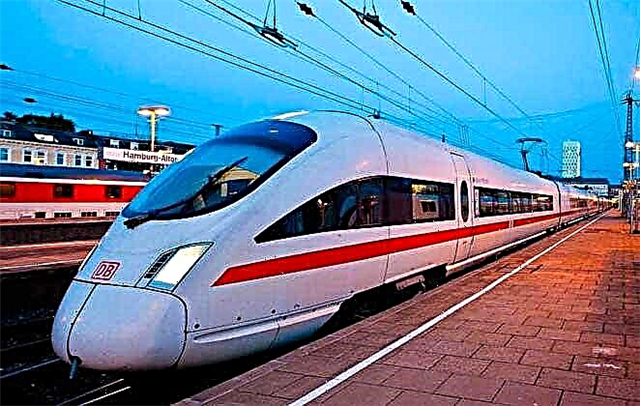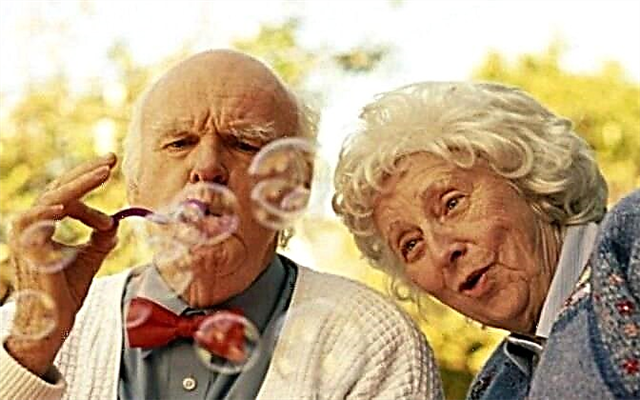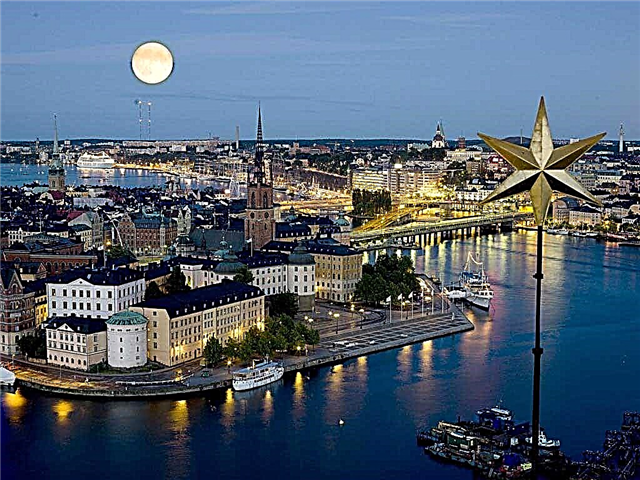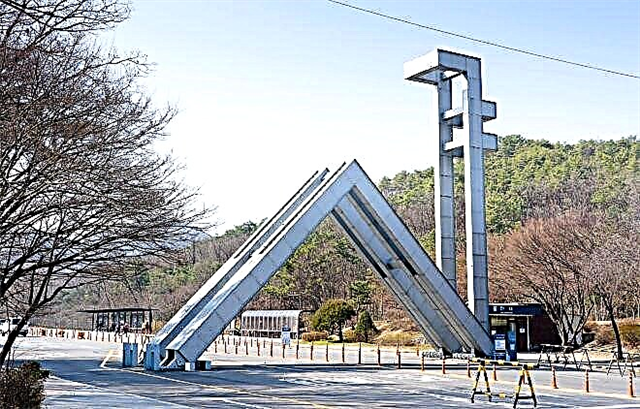Higher education institutions in South Korea occupy leading positions in various world university rankings. Seoul National University is among the best universities in the world. Foreign students are attracted by the high level of teaching, technical equipment, the opportunity to get a specialty in demand in many countries, and the relatively low cost of education.

General information
The history of the establishment of Seoul University dates back to the reign of Emperor Gojong. At the end of the 19th century, by order of the monarch, educational institutions were founded, where they studied law, pedagogy, and medicine. On the basis of these institutions, the National University of Korea was officially opened in Seoul in 1946, uniting 9 colleges and one graduate school.
Over the years, the institute has experienced a campaign against its creation, the evacuation to Busan during the Korean War, the post-war crisis, when some of the students and professors went missing or died.

In 1955, entrance exams were introduced, enthusiastic professors were invited - the university becomes the leader of higher education in Korea. Famous teachers and alumni include:
- Kwon O-hyun - CEO of Samsung Electronics;
- Kim Young Sam - 7th President of South Korea;
- Ban Ki-moon - UN Secretary General until 2021;
- Kim Song Tai - professor and composer;
- Lee Jong-wook has been the Director-General of WHO for three years.
Seoul State University is ranked 36th (2021) in the QS World University Rankings.
University campuses
Seoul University occupies three campuses:
- The main Gwanak campus is located in the southern part of Seoul.
- The Yeongeon campus is located in the northeast of the city, near the banks of the Han River. It houses the Faculty of Medicine, the Faculty of Nursing and Dentistry, and the University Hospital.
- Pyeongchang is a new campus located outside the city.
On the well-groomed campus area there are educational buildings, student dormitories, fitness centers, swimming pools, libraries, cafes, restaurants, shops.
Educational activities
 In the structure of the university:
In the structure of the university:
- 15 colleges where you can get a bachelor's degree;
- 1 graduate school offering 99 master's and doctoral programs;
- 10 professional schools with both master's and doctoral programs.
Seoul National University faculties are popular with international students:
- Humanities: Korean, Chinese, English, French, German, Russian, Spanish and literature, linguistics, Asian languages and civilizations, Korean history, Asian history, archeology and art history, philosophy, religious studies.
- Engineering: Electrical and Computer Engineering, Computer Science and Engineering, Architecture and Architectural Design, Industrial Engineering, Nuclear Engineering.
- Natural sciences: physics and astronomy, mathematics, statistics, chemistry, earth sciences and the environment.
- Social Sciences: Political Science and International Relations, Economics, Sociology, Anthropology, Psychology, Geography, Social Security.
- Business administration.
- Medicine.
- Musical: vocal music, piano, composition, conducting, Korean music.
University admission conditions
 Detailed information on how to enter Seoul National University is posted on the website of the educational institution in the "Information for International Students" section.
Detailed information on how to enter Seoul National University is posted on the website of the educational institution in the "Information for International Students" section.
Basic requirements for the applicant:
- Depending on the chosen study program (bachelor's, master's, doctoral), it is necessary to have a secondary (complete) general education or a bachelor's (master's) degree.
- Knowledge of Korean or English. You need to pass the Korean language proficiency exam - TOPIK (3 or higher) or one of the international tests for English proficiency (TOEFL iBT 80, IELTS 6.0, TEPS 551 or higher).
- It is forbidden to apply simultaneously to several faculties of the university or to other educational institutions for a given semester.
- For admission to master's programs, you need to provide two letters of recommendation from two teachers of the educational institution in which the bachelor's degree was obtained; admissions officials should be able to contact these people.
- Documents are accepted only after submitting an application for admission in electronic form. There is a 70,000 won ($ 60) registration fee upon application, which is non-refundable.
When applying for a bachelor's degree, the package of documents must include:
- application for admission;
- motivation letter and training plan;
- a document confirming knowledge of the language;
- school leaving certificate (diploma);
- copy of your passport;
- portfolio, progress reports (for faculties of fine arts, music);
- certificates of completion of courses, trainings.
Original documents are provided, as well as copies translated into Korean or English, certified by a notary. Since Russia and the Republic of Korea have ratified the provisions of the 1961 Hague Convention, education documents must be apostilled. Russian applicants do not need consular legalization of documents.
Admission rules
 The decision on admission is made on the basis of the application package of documents. Taken into account:
The decision on admission is made on the basis of the application package of documents. Taken into account:
- level of academic achievement;
- academic performance;
- participation in relevant socially significant actions, projects, forums;
- interest in a particular science, branch of knowledge;
- level of language proficiency.
Depending on the requirements of a particular faculty, the applicant may be asked to pass entrance exams / testing, to be interviewed. In such a situation, a representative of the relevant college / faculty will contact the applicant and provide details.
To enroll in specialties related to creativity (art, architecture, design), you need to provide a portfolio of works to assess the creative skills of the applicant, pass a creative competition. You may need to take a learning ability test.
There is no live audition when applying to the College of Music. The applicant may be asked to provide video materials.
If the applicant has chosen to study at a university in Korean, an additional language test will be required (as decided by the admissions committee).
Organization of the educational process
Seoul University's curriculum is based on US standards. Students independently choose subjects for study, the number of which depends on the course - on average, from 3 to 7 disciplines per semester.
The schedule of classes is compiled individually. The material is presented in the form of lectures, presentations, discussions. Visits by renowned speakers are commonplace.
The academic year, which begins in March and ends in February, consists of two semesters. For a semester, you need to get a certain number of points (credits), which are gained based on the test results. During the summer and winter holidays, two sessions are required.
The university uses a relative system for assessing students' knowledge. For example, you might get a low score on a test that did 85% of the items correctly if the majority of students in that course did better.
The terms and cost of training depend on the chosen program. On average, the duration of study is:
- bachelor's degree - 4 years;
- Master's degree - 2 years;
- doctoral studies - 3-4 years.
For one semester at Seoul University for a bachelor's degree, you will have to pay from $ 2,100 (humanities, business administration) to $ 4,300 (medical sciences). Postgraduate studies cost between $ 2,800 and $ 5,200 per semester.
Is it possible to count on financial assistance
 International students can apply for the Republic of Korea Government Scholarship Program. Scholarships are designed for foreigners who plan to study under a bachelor's program for 4 years (except medicine, veterinary medicine, pharmaceuticals and architecture). The application is submitted in September.
International students can apply for the Republic of Korea Government Scholarship Program. Scholarships are designed for foreigners who plan to study under a bachelor's program for 4 years (except medicine, veterinary medicine, pharmaceuticals and architecture). The application is submitted in September.
Annually, 20 to 40 people receive a scholarship under the government program.
The scholarship covers the costs of:
- training for 8 semesters;
- Accommodation - 800,000 won per month (approximately $ 680);
- air flight (one trip in both directions);
- language courses throughout the year (studying the Korean language);
- health insurance.
To receive a scholarship, you must apply to the Embassy of the Republic of Korea in your country of residence. The diplomatic mission selects the candidates for the scholarship. The NIIED-National Institute for International Education of the Republic of Korea makes the final choice.
Detailed information on grants and scholarships is available on the Korea Learning Support System website.
Russian students have the opportunity to take part in the student mobility program. The University has a wide range of partner universities in Russia, from which exchange students can come to study during the semester. Under the terms of internal agreements between educational institutions, tuition and accommodation at Seoul University will be free for them.
What are the prospects for graduates
Many foreigners, after graduating from Seoul University, remain to live in the country. Graduates with a diploma from one of the most prestigious universities in the world are willingly hired by such large companies as Samsung, LG, Hyundai Motor. Employees of corporations already at the initial stage receive salaries above the market average.
According to employee reviews, a foreign applicant with an engineering degree is hired by Samsung even without knowledge of the Korean language, since work issues are resolved in English. New employees are paid for language courses (10 weeks).
Take a sociological survey!
[yop_poll id = ”14 ″]
Where students live and eat
University students can choose from different accommodation options:
- Student residences located on campuses. Rooms are designed for 1-4 people. Accommodation is paid for a semester - from 300 to 1,000 dollars. You can eat in the university canteen. The cost of breakfast and lunch is about $ 700 per semester. In accordance with the rules of the educational institution, the hostel is provided depending on the student's rating.
- Private rental housing. It can be a goshiwon (something between a dormitory and a small apartment, 10–20 rooms on the floor, a shared kitchen, cost from $ 300 per month) or an apartment (cost from $ 500 to $ 1,500 per month with a deposit of about 5,000 dollars).
- In a Korean family. This option is often chosen by Russian students who want to improve their knowledge of the language, get to know more about the traditions and culture of the country.
- Hasuk - private hostels located near universities. The average cost is $ 250-300. Food is usually provided.
Seoul Leading Universities
 Other universities in Seoul have a good reputation. In addition to Seoul University, the top three known as SKY include:
Other universities in Seoul have a good reputation. In addition to Seoul University, the top three known as SKY include:
- Koryo University - prepares the best legal professionals.
- Yonsei University is popular with those wishing to gain good knowledge in medicine.
Reputable universities are:
- Hanyang University,
- Kyung-hee University,
- Ewha Women's University,
- Hanguk Foreign Languages University,
- Kunming University,
- Songgyungwan University,
- Chunan University.
Higher education institutions in South Korea are renowned for their achievements in medicine, robotics, chemistry and biology.
Conclusions
Seoul University is a general educational institution that combines humanitarian and technical areas. Teaching at the university is conducted in English and Korean.
To enroll, international students must prepare paperwork and submit an online application. The cost of training depends on the chosen program and direction.
University campuses are equipped with everything you need.
The university prepares students for work in an increasingly competitive environment, so its graduates find work in world famous corporations without any problems.











